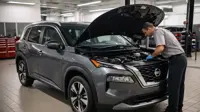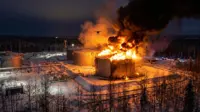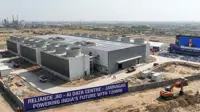Eco friendly engines as replacements
By Usha Somayaji | 11 Mar 2000
Kirloskar Oil Engines Ltd. has developed a new range of eco-friendly engines, the R 1040 series, which are expected to replace the current range of medium range engines.
"These are the first indigenously designed and manufactured engines that meet pollution norms in the US," said KOEL chairman and managing director, Atul Kirloskar, addressing shareholders at a delayed AGM in Pune on March 6. The AGM was postponed to accommodate the amalgamation of Shivaji Works Ltd., a Kirloskar group company that had turned sick.
The R 1040 series of engines have been certified by the South Western Research Institute as meeting US Tier I norms for off-highway vehicles (generator sets, construction and industrial machinery). "The new engines use less fuel and oil, and emit less noise and polluting substances," said Kirloskar.
The development and production of the new range of engines is part of an effort to become an environmentally friendly company. "Ours is a mechanical engineering industry which is relatively less polluting by nature. However, the products we make -- diesel engines -- are polluting by nature," said Kirloskar. Hence, "our responsibility is to manufacture engines which are less polluting, and to manufacture the engines and bearings in an environmentally friendly manner."
As part of the company''s objective to be an environmentally friendly company, it worked towards the ISO 14001 certification, which it obtained in February this year from TUV of Germany for complying with the prescribed Energy Management Systems.
The new engines, introduced a few months ago, are at production levels of 400 per month, and are expected to totally replace the RB and RV engines in the medium range category in a year''s time, according to a company official. These two engine categories together account for 50,000 numbers annually.
The new engines will augment the company''s growth in the medium range where it saw a marginal 4.5 per cent growth in 1998-99, accounting for Rs 345 crore of the Rs 736 crore turnover. "The major challenge in this sector was that the technology and quality was lagging behind world standards, which we have now rectified," said Kirloskar.
The highest growth was seen in the small engines sector, at 11 per cent, accounting for Rs 149 crore. An improving trend continues in the current year.
Although the company has seen sluggish growth in the large engines category, it has positioned itself to take advantage of an expected take off in the infrastructure sector. The company expects to close fiscal 1999-2000 with a turnover of Rs 800 crore.
Fiscal 1999-2000 also saw the completion of the process of amalgamation of Shivaji Works Ltd., which ran into trouble since 1996-97, and turned into a BIFR case. Since Shivaji Works was a key supplier of castings to KOEL, it was decided to amalgamate it with KOEL, at a share swap ratio of 1:25. The amalgamation process was completed in January 2000, and SWL now constitutes the casting division of KOEL. A restructuring exercise initiated at SWL has, in the meantime, turned around the unit, which has begun making cash profits.



















